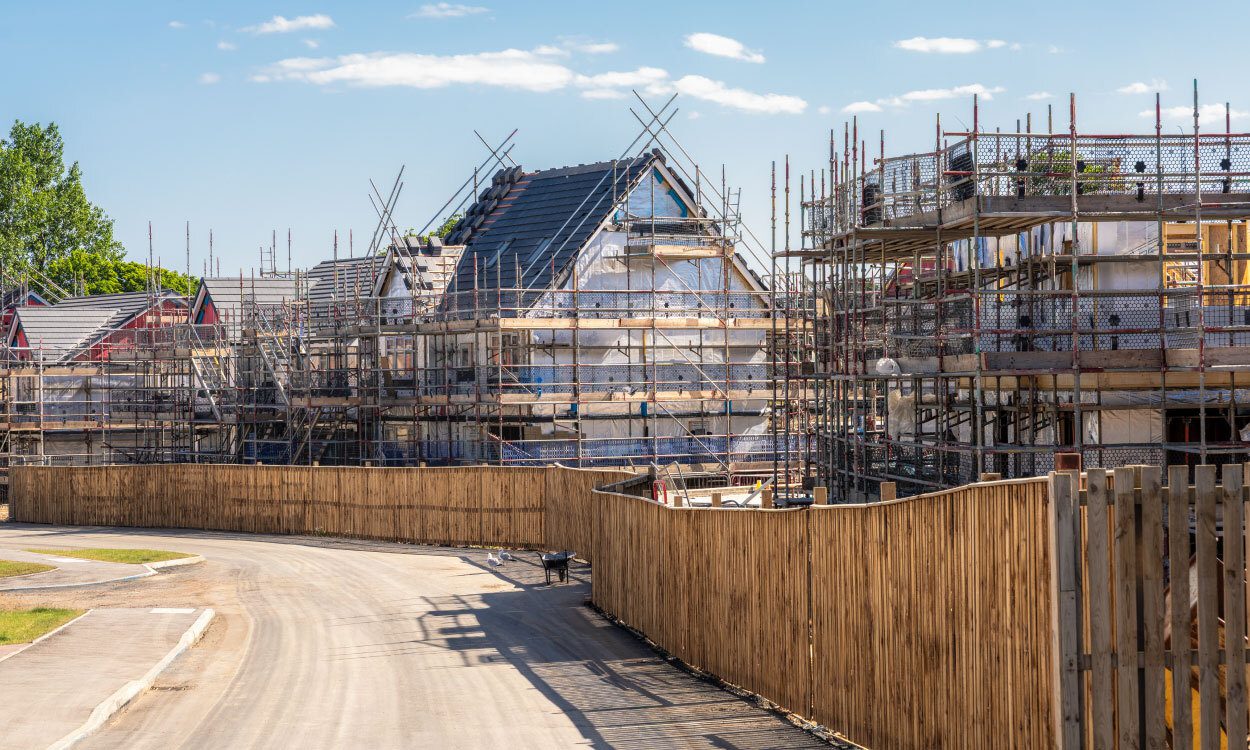

18 Sept 2025
What is Lean Construction?
The construction industry is one of the most complex in the world.
Every project involves multiple contractors, tight budgets and high client expectations. With so many moving parts, even small inefficiencies can cause costly delays and compromise quality. With this in mind, more and more businesses are adopting lean construction - an approach that is designed to streamline processes and reduce waste.
Here at Contractwise, we are experts in construction - specifically CIS compliance. Our services protect contractors and subcontractors by providing payroll audits and minimising the risk of a costly HMRC reclassification.
In this article, we’ll explore what lean construction is and how it can enhance your construction business.
What is lean construction?
At its core, lean construction is a project management philosophy that takes an integrated approach and focuses on maximising value and minimising waste. To achieve this, it champions collaboration among all participants on a project, including owners, designers, contractors, workers and many more.
The method traces its lineage to the early 20th century, with principles outlined by the legendary Henry Ford - the American businessman who created the Ford Motor Company. Lean construction today adapts Ford’s strategies and applies them to the dynamic and variable world of construction. Rather than simply meeting specifications, this style of construction seeks to amplify profit and productivity across every phase of construction.
What are the principles of lean construction?
Lean construction is built on six key principles. Together, they form a framework for streamlining projects, reducing inefficiency and delivering real value. Let’s take a closer look at each:
Identify value
The first step in lean construction is defining what value means. Unlike traditional approaches that focus on ticking boxes, lean construction looks at what outcome the project is trying to achieve.
For some clients, this could mean making sure the project is on time. For others, it could be creating an energy-efficient structure. By clarifying this early, it prevents time being wasted on activities that do not meet the goal.
Mapping the value stream
Once the value has been defined, the next step is to map the value stream. This is a detailed look at every process that contributes to the project, including procurement, design and logistics.
By making the full value stream visible, teams can spot inefficiencies and minimise them.
Creating flow
In lean construction, ‘flow’ refers to the smooth movement of work from one stage to the next without delays or interruptions. Poor flow can occur when materials arrive late, tasks are badly scheduled, or work is ineffective.
Creating flows requires clear communication and early involvement of all those involved in the project.
Using a pull system
Traditional construction often relies on a ‘push’ approach - meaning tasks are scheduled and handed down, whether or not the next stage is ready. This can lead to wasted materials or incomplete work. On the other hand, a pull system ensures that work only begins when the next stage of the process is ready.
Reducing waste
Waste in construction comes in many forms, from overproduction to poor quality of work. Lean construction seeks to identify these wastes and eliminate them wherever possible.
Even something as simple as rethinking the layout of the site - so workers aren’t walking hundreds of unnecessary steps a day - can have a huge impact on productivity and prove wasteful.
Continuous improvement
Lean construction isn’t a one-time fix - it should be a mindset of continuous improvement. Teams should regularly review what is working well and refine their processes as necessary.
Benefits of lean construction
Lean construction can deliver a wide range of powerful benefits, including:
Improved construction site safety: Clear communication, coordinated planning and engaged stakeholders cultivate a safer onsite environment - helping reduce accidents and health risks.
Reduced cost: By minimising delays, excess production and unnecessary resource usage, the lean construction methodology drives projects toward completing on time and under budget.
Improved sustainability: Waste reduction - both in materials and processes - means fewer resources are consumed and there is a minimal impact on the environment.
Higher quality work: Eliminating repeating work and defective outputs will enhance the consistency and excellence of construction outcomes.
Better project management: The principles of lean construction help to establish more predictable workflows and stronger accountability across the team. This makes the entire project easier to manage.
Faster turnarounds: With optimised scheduling and reduced waiting times, projects can progress much faster.
Improved customer satisfaction: Delivering on a project’s goals will build confidence and satisfaction among customers and stakeholders - boosting your reputation.
The history of lean construction
The concept of lean construction was first introduced by Henry Ford on assembly lines at his car factories. He was an advocate for continuous flow and waste reduction throughout his business. Since then, it has been seen in a wide range of major projects, including during the construction of the Empire State Building in the 1930s, and Toyota’s production system also formalised lean construction principles in its factories.
The term ‘lean construction’ was first coined in the 1980s, but the principles of the philosophy can be seen much earlier than that. In modern construction, research has shown that lean methods boost the likelihood of early, under-budget project outcomes.
Lean construction is more than just a methodology; it’s an integrated culture of collaboration and continuous progression. Here at Contractwise, we share the lean mindset, especially when it comes to our CIS payroll services. We streamline everything we do to ensure your financial workflows move seamlessly.
If you work in the construction industry and require support with your CIS obligations, we’re here to help. We help to remove any admin errors (including costly HMRC reclassification risks), reduce payment delays and keep all contractors and subcontractors fully protected. For more information on how we can support your organisation, contact Contractwise today.